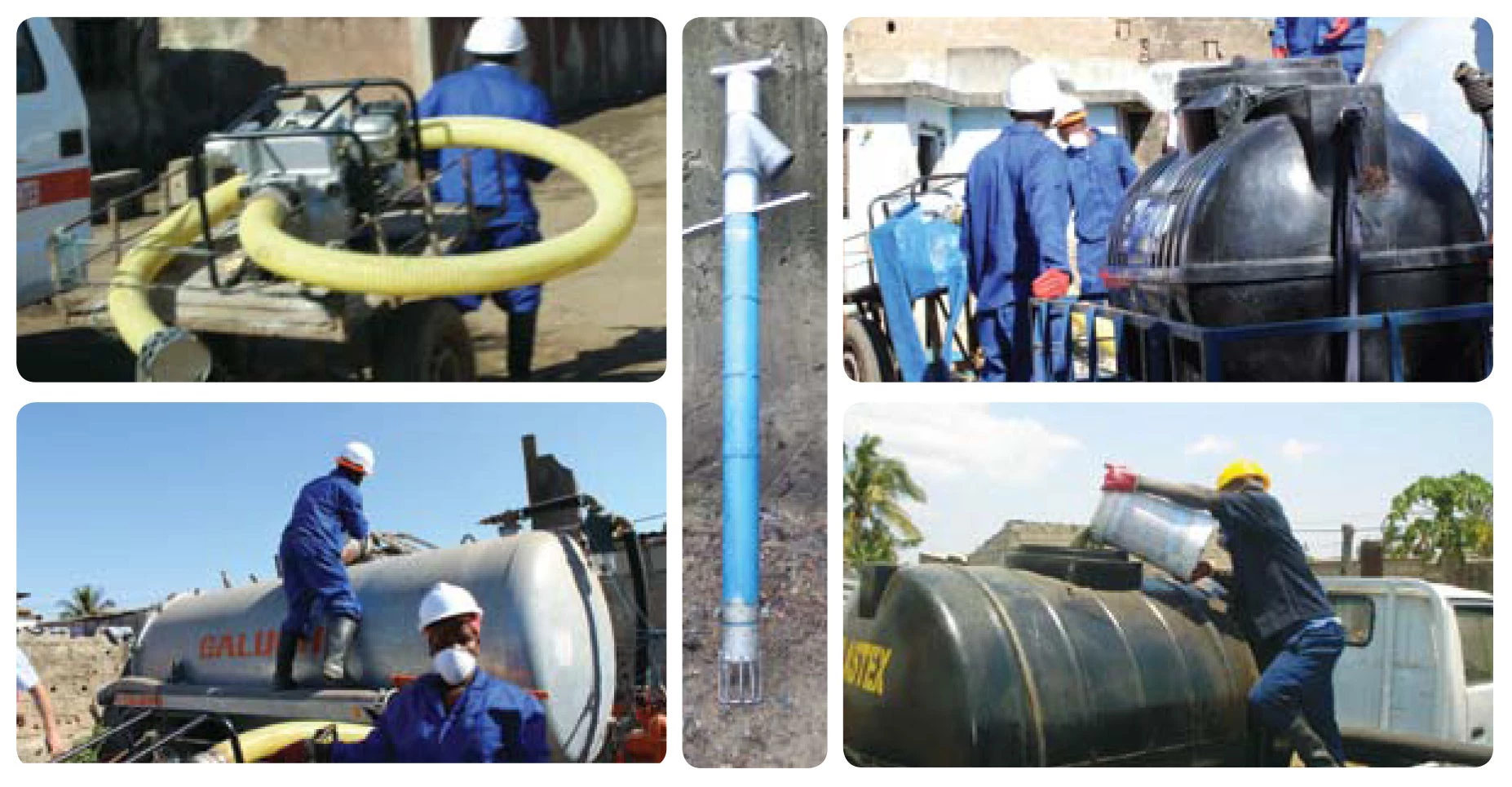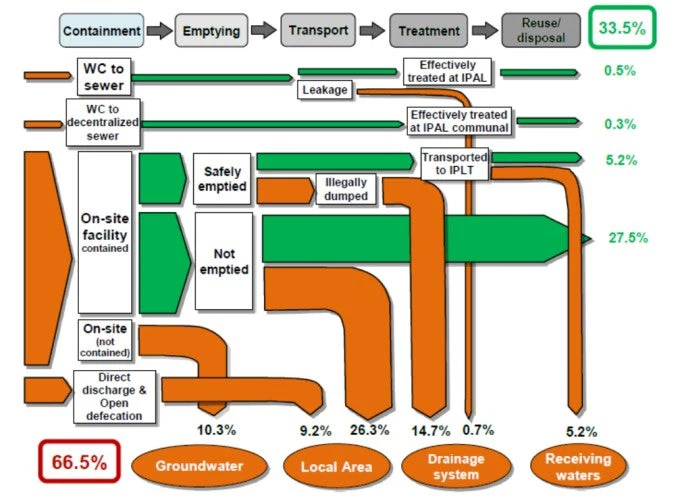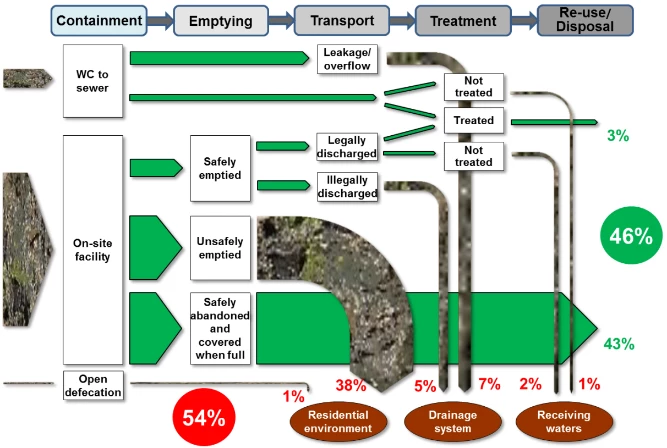
In previous blogs on Fecal Sludge Management (FSM), we outlined the lack of appropriate attention given to FSM as a formal urban sanitation solution and we presented new tools for diagnosing fecal sludge challenges. In this blog, we provide illustrations from Indonesia and Mozambique of the challenges and opportunities of using FSM.
Balikpapan, Indonesia
Balikpapan is a rapidly growing city of 650,000 people in Indonesia. Back in 2013, a key sanitation challenge was the lack of clarity around institutional roles and responsibilities, particularly for FSM services. The City Cleanliness, Housing and Parks Agency focused on solid waste and managed a septage treatment plant, but played no role in the emptying and transportation of fecal sludge. The water utility managed the existing sewerage system, although it had few connections. It was unclear who, if anyone, supervised or issued permits for on-site fecal sanitation systems, and this was exacerbated by the lack of available standards, guidelines and norms for the construction and servicing of such systems.

The fecal waste flow diagram for Balikpapan showed that, although 90% of households used on-site sanitation facilities, arrangements for FSM were inadequate. Only about 40% of on-site facilities had ever been emptied, and there was limited demand for emptying services. When fecal sludge was removed, it was often dumped indiscriminately, and little of it arrived at the septage treatment plant. The low demand for emptying was further decreased by a lack of regulation and enforcement, by soakage to the ground from the many latrines which discharge into partly lined soak-pits, and by the 10% of latrines which overflow directly into drains or open water bodies.
In mid-2014, using some of the new FSM tools presented in this series of blogs, Balikpapan city officials had constructive discussions about “how do we solve these FSM issues?” and “what are the priorities to be addressed?”. The priorities subsequently identified included:
- Strengthening institutional roles, sanitation policies and regulations;
- Establishing and implementing city-wide plans and realistic budgets to improve FSM services;
- Incentivizing the private sector to discharge sludge at the treatment plant;
- Improving technical standards for on-site facilities; and
- Developing affordable emptying services for dense low-income housing with limited access.
Maputo, Mozambique

In response to these challenges, Maputo Municipal Council (MMC) decided to pilot improved FSM services in the Municipal District of Nhlamankulu, known for having the most severe sanitation problems in the city, and did so at a scale sufficient to provide the basis for a subsequent city-wide roll-out of tested solutions. MMC worked with three principal partners: the World Bank; the international NGO, WSUP; and the local association of micro-enterprises, which provide primary solid waste collection services in peri-urban Maputo, and eight of which were selected to branch out into the provision of FSM services.
Improved FSM services were developed, based on simple equipment that could be carried through the narrow alleyways, delivering the fecal sludge to a tanker-trailer or to a plastic water tank mounted on a light truck. After two years, seven viable FSM businesses are now operational, well accepted and regularly used by local residents .
In parallel with developing these new services, MMC has revised its municipal sanitation byelaw so that, for the first time, it allows for and regulates FSM service provision in peri-urban areas, based on the lessons learnt from this pilot. The byelaw creates incentives for the private sector to expand services in peri-urban areas, and for residents to be more vigilant in protecting their health and the environment. It also allows for MMC to develop service models and payment mechanisms to facilitate the access of poor households to FSM services. All of the fruits of these recent developments are yet to be seen, but improvements have already been demonstrated. Read the full case study on Maputo.
Is your city doing well in fecal waste management? Can other cities learn from it? Please share your experiences by leaving comments below.
Related links:



Join the Conversation